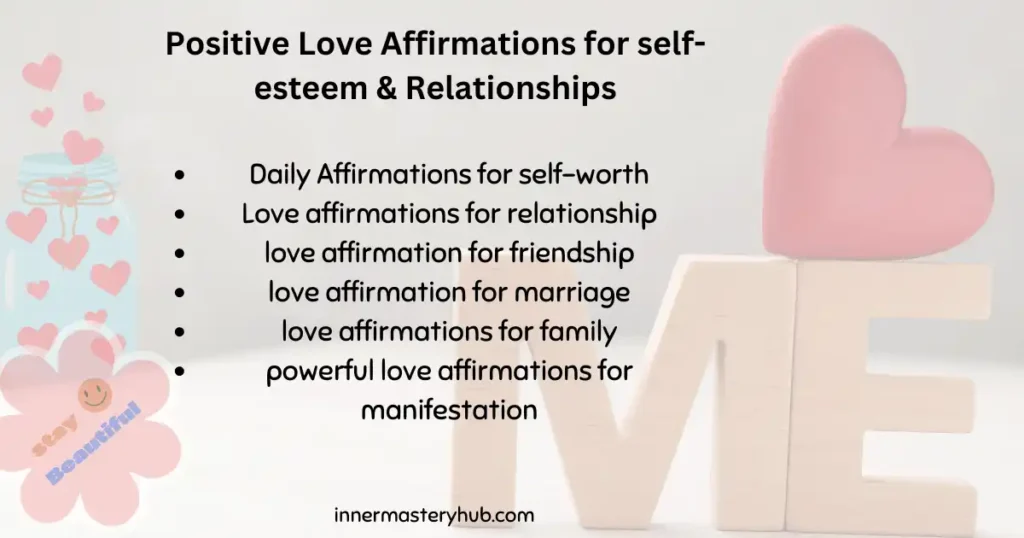Why Are Some People So Loud? Here’s What Science Says!
Why Are Some People So Loud
Some people are naturally loud due to personality traits like extroversion or a need for attention. Environmental factors, cultural influences, or even emotional responses can also play a role. Understanding the cause can help improve communication and interactions with louder individuals.

Have you ever been in a situation where someone’s extreme loudness caused discomfort for everyone around you? Perhaps you have experienced that at a casual get-together, a professional meeting, or a party. It can be annoying when folks are naturally louder than others. When someone who is loud has the cause of this, and how to deal with it.
Why Are Some People So Loud?
Let’s start by being clear: not everyone loud is intentionally trying to annoy others. Being too loud can be caused by a number of factors, such as a medical condition, one’s environment, or a personality attribute.
Because they were raised in loud households or environments where loudness was accepted, some people are naturally loud. Other elements, like culture, also have a significant role. In many cultures, being loud and vocal can be interpreted as a sign of confidence, toughness, and passion. Some cultures may view what you consider to be loud and impolite as normal.
Some people talk too loudly because they are unaware of their volume. This may occasionally be the result of their inability to hear you clearly. So that they are heard accurately, those who have hearing loss speak loudly. People of all ages can be affected by hearing loss, which is a common problem that may go undiscovered until someone else brings it to our attention.
It’s also possible that some people are simply good at expressing themselves. Compared to introverts, extroverts are more vivacious and may use louder speech to make their point. This has to do with being noisy as well. Simply put, they are unaware that their noise is upsetting other people.
How Does Loudness Affect Us?
Now, let’s see how this noise level affects our behavior. No matter how hard we try to keep calm, a loud person can still affect us in many ways.
Stress is one clear outcome. When someone is loud all the time, it can make you nervous. The American Psychological Association (APA) says that when you are around loud people, constant loud noise makes you more stressed, which is bad for your health. It can make you irritated and hard to focus, and may cause long-term problems like anxiety or heart disease.
When a person talks too loudly in a social or work environment, it makes it hard to have a conversation with them. Have you also experienced this in a meeting when one person continuously talks over everyone else? It’s annoying and makes it hard to talk to people. The inability of the loud person to understand the impact of their words leads to stress and communication breakdowns in both personal and professional settings.
Sometimes being the loud person in the room can have some negative effects. For instance, it can make quieter people feel like they’re on the outside looking in. If someone’s really introverted or just prefers to keep to themselves, a loud person might unintentionally make them feel awkward or uncomfortable. And that can be a problem. The quieter person may just stop talking to the person altogether, which is basically a sign that they’re checking out of the conversation, for good.
Let’s face it, noise can be an issue. When you’re out in public, and someone is being too loud, it’s pretty annoying. I mean, who likes to have their time disrupted by someone being too loud on their phone or laughing loudly with their friends? It’s not just about being considerate of others; it’s also about respect. When you’re blasting your music or talking at the top of your lungs, you’re basically invading the space of those, around you.. That’s just plain rude.

How to Handle Loud Behavior
So, how do you deal with a loud person? Is there a way to manage or even reduce the impact of their loudness without causing conflict?
Understand the Cause
The initial step requires determining the reason behind the person’s loud behavior. Does the person lack awareness of their loud volume? Is there a difference in culture? Are they having trouble hearing? Your ability to address the situation will improve when you determine the underlying reason for the noise.
You should approach the person with a calm tone to suggest doctor visits if you suspect hearing loss. Your understanding of their behavior will improve when you realize they probably do not intend to cause the disturbance.
Communicate Your Concerns
The next step is to fix the problem once you know what it is. It’s okay to tell them how you feel if their noise bothers you. You don’t have to be hostile when you talk to them. Talk to them in a calm, confidential way first and tell them how their noise affects you.
You may say, “Hey, I wanted to talk about something that’s been bothering me.” When the volume is really high, I have trouble concentrating. Could you perhaps turn it down a bit? This way of dealing with them demonstrates that you respect who they are, but you also need some peace.
Set Boundaries
Sometimes you need to set limits. For example, if you work with someone who is loud and energetic, you might have to tell them that their noise is getting in the way of work. If the noise gets too loud in social circumstances, you might want to leave and make it known that you need some quiet. The most important thing is to do this quietly and not make things worse.
Be empathetic
Keep in mind that the loud individual may not know how their voice is bothering other people. This is where empathy comes into play. Instead of getting mad or annoyed, try to see things from their point of view. They can be talking loudly because they want to be heard, or they might not realize how loud they are. If you understand their point of view, you may be able to handle the situation better.
Provide Constructive Feedback
If you’ve spoken to the loud person and they still can’t turn down the level, you may need to give them more detailed criticism. Rather than merely telling them, “You’re being too loud,” provide them with concrete actions they may take.
Saying something like, “Maybe try lowering your voice a bit when we’re in a group, so everyone can be heard,” is one example. By providing concrete instances, you may make your point clear to them.
Choose Your Environment Carefully
In situations where noise levels are unavoidable, you might need to modify your surroundings. For instance, using noise-canceling headphones can help you concentrate in spite of background noise if you’re working in a shared office setting. Move to a more private space if you’re in a group situation so you can talk without being interrupted by the noise.
Self-Regulation by Identifying Your Own Role
It’s crucial to consider your personal part in these exchanges in the end. Are you responding to the noise too strongly? Are you experiencing more stress than is necessary? Using stress-reduction methods, such as mindfulness or deep breathing, can help you control how you respond to noisy environments. You’ll be able to deal with the situation more gracefully and with less annoyance in this way.
Handling Being Too Loud in a Peaceful Way
Sometimes, being too loud behavior is due to their personality, surroundings, or even a medical condition; they are not always attempting to cause mayhem. The first step in coming up with a calm solution is figuring out what is causing someone to be too loud. Setting boundaries, communicating calmly, and exercising empathy will help you handle the situation without needless confrontation.
Recall that not everyone is conscious of the impact their volume has on other people. Loud circumstances can be handled in a way that respects all parties involved if one has patience and understanding. The next time you are interacting with someone who is loud, consider using these techniques. Making a more tranquil, balanced environment for yourself and other people may be simpler than you might imagine.
Frequently Asked Questions and Answers about “When Someone is Loud”
Why are some people louder than others?
Due to hearing problems, personality factors, or cultural variations, some people speak so loudly. People who are extroverted tend to be louder in their surroundings. In addition, those who have hearing loss inadvertently speak louder to make up for their impaired ability to hear.
How do you tell someone who is loud?
Calmly approach them and explain how their volume makes you feel. You could remark, “I find it difficult to concentrate when the volume is high.” Do you mind speaking a little more quietly? Make sure they comprehend your viewpoint and provide helpful criticism without placing blame.
How can I deal with a loud coworker?
Explain in private how your job is impacted by the coworker’s volume. Suggest changing locations or speaking in softer tones. Talk to HR to find a fair solution if the conduct continues, so that everyone can work together in harmony.
How can I lower my voice?
Because loud voices can cause sensory overload, they can cause discomfort. The body’s stress reaction is triggered by continuous noise, which makes it hard to concentrate. This response is normal since loud noises are interpreted by the brain as possible hazards to health.
How to deal with overly loud people?
To handle overly loud people, avoid reacting impulsively. Politely ask them to lower their volume or find a quieter space. If the situation persists, limit interaction.
What does psychology say about loud people?
Psychology suggests that loud behavior can stem from various factors, such as a need for attention and low self-esteem. It may also be a sign of personality traits like extroversion. In some cases, it can be linked to stress or an inability to gauge social cues.
Why do I get irritated by loud people?
Many people get irritated by loud people because loud sounds overload the brain. If you’re sensitive, tired, or stressed, noise feels intrusive and hard to ignore. Loud behavior also feels disrespectful, which triggers irritation as a way to protect your focus and comfort.
How to deal with loud people?
To deal with loud people, politely ask them to lower their voice or speak more quietly. If needed, remove yourself from the situation. Focus on staying respectful and not getting frustrated, as staying calm helps manage the situation better.
Why are some people so loud in the morning
Some people are naturally more energetic in the morning and feel more active, which can make them appear loud. It could also be a habit or cultural difference, where being loud is seen as a sign of enthusiasm.
Why do people talk loudly in public?
People talk loudly in public for various reasons, such as not realizing their volume, feeling excited or passionate about a topic, or trying to be heard over background noise. Some may do it unconsciously due to habit.






